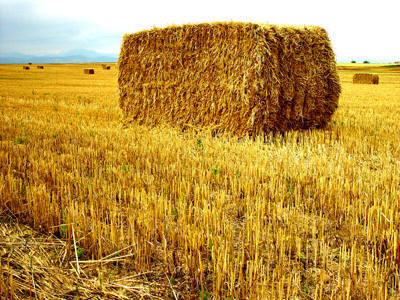| 正面 | 4775.straw 英 [strɔː]美 [strɔ]     |
|---|---|
| 背面 |      释义: 1. happen => perhaps.2. happen => hap.3. happen => hapless.4. hap "chance, fortune, luck" + 双写p加-y.5. happy => happily.n. 稻草;吸管;一文不值的东西adj. 稻草的;无价值的n. (Straw)人名;(英)斯特劳 例句: 1. I stumbled through mud to a yard strewn with straw.我跌跌撞撞地趟过泥地来到一个堆满麦秆的场院。 straw 草,吸管来自古英语 streaw,草,来自 Proto-Germanic*strawa,草,来自 PIE*strew,展开,铺开,扩大形 式自*ster,展开,铺开,词源同 strew,structure.引申词义吸管。 strawstraw: [OE] Straw is etymologically something ‘strewn’ on the floor. The word goes back to a prehistoric Germanic *strāwam (source also of German stroh, Dutch stroo, Swedish strå, and Danish straa). This was formed from the same base as produced strew [OE], and goes back ultimately to Indo-European *ster- ‘spread’, source also of Latin sternere ‘spread out’ (from which English gets prostrate, strata, etc). Dried grain stalks were commonly scattered over floors as an ancient form of temporary carpeting, and so they came to be termed straw.=> strata, strewstraw (n.)Old English streaw (rare) "stems or stalks of certain species of grains," apparently literally "that which is scattered or strewn," related to streowian (see strew), from Proto-Germanic *strawam "that which is scattered" (cognates: Old Norse stra, Danish straa, Swedish strå, Old Saxon stro, Old Frisian stre, Old Dutch, Old High German stro, Dutch stroo, German Stroh "straw"), from PIE *stere- "to spread" (see structure (n.)). The notion perhaps is of dried grain stalks strewn on a floor as carpeting or bedding. As a type of what is trifling or unimportant, attested from late 13c. Meaning "hollow tube through which a drink is sucked" is recorded from 1851. To draw straws as a means of deciding something is recorded from 1779 (the custom probably is older). As an adjective, "made of straw," mid-15c.; hence "false, sham." Straw poll is from 1932; earlier straw vote (1866). Straw hat first attested mid-15c. To clutch (or grasp or catch) at straws (1748) is what a drowning man proverbially would do. The last straw (1836 apart from the full phrase) is from the proverbial image: "it is the last straw that breaks the camel's back" (or, less often, the mare's, the horse's, or the elephant's), an image in use in English by 1755. Let it not, however, be inferred that taxation cannot be pushed too far : it is, as the Oriental proverb says, the last straw that overloads the camel ; a small addition, if ill-timed, may overturn the whole. ["The Scots Magazine," April 1799]" |